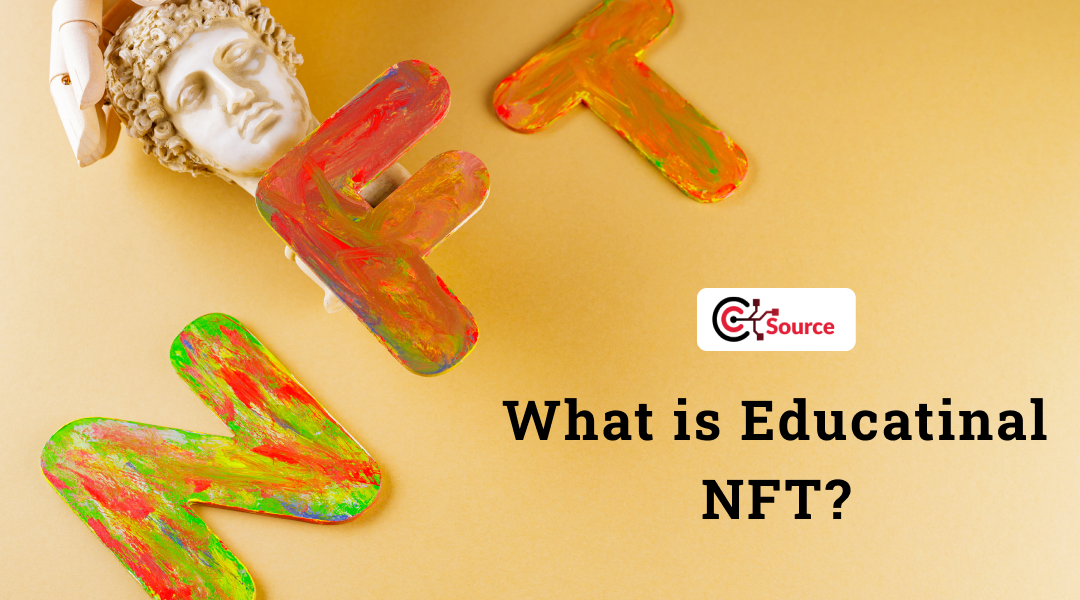Introduction
We are presently experiencing a new renaissance in the art world, and it is defined by the term ‘NFT’. Just like the European Renaissance of the 15th and 16th century’s involved fundamental shifts in the art world at the center of another cultural phenomenon, NFT is a defining technological advancement.
As education has been reforming due to the industrial revolution. The structure, discipline, and learnings in school were much intended in shaping the next generation of citizens. But as the internet age has developed and is growing faster than any other era, it has been difficult to plan the educational experience for the student living in a more globalized setting. Even now there are high evaluations on how many non-existent jobs our present students will take.
Chances are you have seen the acronym “NFT” everywhere on the internet. While the first NFT was founded in 2014, the market boomed in 2020 and climbed the leaderboard at around $338 million. While NFTs are still a nascent technology, it’s definite that they will have consequences on the future of the internet and digital ownership. As such, we would like to provide some related thoughts on NFTs and their potential future.
NFT use cases
Right now, the NFT space is flourishing with digital collectibles. Millions of dollars (in crypto-currency) are being created by artists, fashion designers, game developers, filmmakers, photographers, and sports fans by selling their work in NFT marketplaces. Below are some cases of how NFTs can be useful for the development of technology and their widespread growth:
* Ticketing for events
* A representation of property ownership
* Digital art sales
* Domain name ownership
* Identification and certification
* Digital fashion and wearables
* Healthcare records
* Healthcare records
* Music ownership
NFTs in Education
• Micro-credentials:
Micro-credentials is a kind of authorization earned by proving capability in a particular skill. While certificates are generally provided in printed form or as a soft copy, the major encounter has always been verification, as well as assessing the value of the credential.
However, what if Colleges, schools, online courses can provide certificates in the form of tokens. This can be a benefit in getting the validation and making it easier to claim. Ultimately, all forms of identifications like diplomas, degrees, and PHDs can also be tokenized, and likely stored in any type of digital wallet that helps us to verify a person’s educational profile.
• Transcripts and Records:
Not only awards or certifications, but school transcripts can be transformed into NFTs, which can also include grades, reports, and annual achievements. Right now, if any person or student wants to access a college transcript, they should call come to the school and pay a fee for the same. In the US, High school elders pay fees to have SATs, and/or ACTs sent to each college as per their interest.
In this situation fees is not the problem, the issue is that student activities in the form of transcripts, grades, reports, achievements should certainly be owned by the students and not the institutions.
• Scholarships and Entitlements:
Tokens can also be used for accessibility purposes, for example, a College can offer NFTs that contain privileges like a free online course, tickets to events, access to resources, training sessions, etc.
The NFTs can also be secured for options like scholarship opportunities, or discount offerings. So purchasing University-based tokens could place them in a pool for available scholarships. I think this area needs to be discovered, but I can imagine an academic marketplace that includes top universities and colleges where educational contributions are available as NFTs.
• Master class and Content Creation:
Content creators who are involved in offering courses, lessons, video lectures, etc., can certainly be benefitted from NFTs. If a content creator develops a course and sells it to a marketplace or university, they can add preferences that include sovereigns from inferior sales.
• Learning Experiences:
Learning as we know it, is not just about passing, getting good grades or adding knowledge but is primarily ‘experiential.’
Conclusion
We are at the very beginning of the NFT regeneration, and, likely, NFTs will fundamentally shape the landscape of a new digital economy. It is gratifying to see some potential use cases for NFTs as applied to education, but it will be really interesting to see how that evolution grows.

